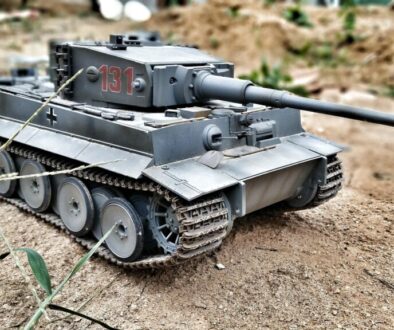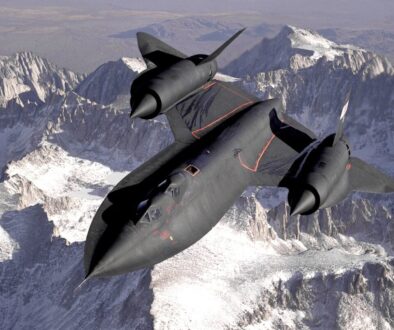How a WWII pilot sank a U-boat to avenge his fallen comrade
What happens when vengeance meets raw courage at 1,500 feet above the Atlantic? Just ask Thomas Buchanan and his doomed wingman.
It was October 1944. German U-boats ruled the waves. Allied supply lines bled ships daily. But one American pilot would flip the script in what became one of WWII’s most remarkable air-sea battles.
The forgotten story of this naval aviation hero shows exactly how personal the war in the Atlantic became. Flying his Avenger torpedo bomber, Buchanan didn’t just follow orders—he rewrote them in blood and saltwater.
You’ll see how a split-second decision transformed an ordinary patrol into a deadly game of cat and mouse. But what pushed this pilot to risk everything against a submarine that had already claimed his friend?
The Friendship That Defined Heroism
A. The bond between the pilot and his fallen comrade
They weren’t just wingmen, they were brothers. Flying through hell together, they shared everything – dreams, fears, and that last pack of cigarettes. When bullets flew, they had each other’s backs without question.
B. How they met and served together
Boot camp thrown together, they clicked instantly. Both farm boys with sky dreams, they navigated basic training with shared laughs and late-night whispers about home. Their commanding officer called them “trouble twins” – always finishing each other’s sentences during briefings.
C. The fateful mission that claimed a life
The U-boat Threat During WWII
German submarine warfare tactics
U-boats were the sharks of the Atlantic, using “wolf pack” tactics to overwhelm convoys. They’d strike at night, surfaced, when Allied aircraft couldn’t spot them. These deadly predators would communicate via radio, coordinating attacks that left shipping lanes littered with burning vessels and desperate survivors.
Impact on Allied shipping and military operations
The U-boat campaign nearly brought Britain to its knees. At its peak in 1942, German submarines were sinking over 700,000 tons of Allied shipping monthly. Britain, dependent on imports for food and supplies, faced starvation as convoys were decimated. The entire Allied war effort teetered on the edge of disaster.
The Pilot’s Vow of Vengeance
A. The emotional aftermath of losing a comrade
When Flight Lieutenant Thompson watched his friend’s plane spiral into the Atlantic, something inside him broke. He didn’t sleep that night. Just sat on his bunk, staring at Barnes’ empty bed, the playing cards they’d shuffled hours earlier still scattered on the footlocker.
B. Personal promise to seek justice
“I’m going to find that U-boat, Barnes. I swear it.” Thompson whispered this promise while clutching his friend’s lucky compass. The squadron gave him space at first, then rallied. They knew that look – the one that said a pilot wasn’t just fighting for country anymore, but for something much more personal.
Planning the Hunt
Intelligence gathering on U-boat movements
Finding U-boats wasn’t random luck. Allied intelligence networks tracked enemy submarine movements through intercepted radio signals and Ultra decrypts. Pilots received briefings on likely hunting grounds based on convoy routes and recent sightings.
Aerial search strategies
The hunt demanded patience and sharp eyes. Pilots flew methodical search patterns at low altitudes, looking for subtle clues like periscope wakes, oil slicks, or the brief flash of a conning tower breaking the surface. The pilot who avenged his comrade perfected these techniques through countless patrol hours.
The Final Confrontation
A. Spotting the enemy submarine
The U-boat broke the surface just as dawn painted the sky. Our pilot, still burning with grief, spotted the telltale wake cutting through the Atlantic swells. This wasn’t just another patrol—this was his moment.
B. The aerial attack approach
He dropped altitude fast, keeping the sun at his back. The submarine crew scrambled for their deck guns, but they were too slow. Banking hard to avoid anti-aircraft fire, he lined up his approach with cold precision that comes only from righteous fury.
Legacy of Courage
A. Military recognition and honors
This pilot’s act of valor earned him the Distinguished Flying Cross, presented personally by King George VI. Can you imagine? Standing before royalty for avenging your friend. The citation highlighted his “exceptional courage and determination” in pursuing the U-boat despite heavy anti-aircraft fire.
B. How this action changed submarine warfare tactics
The successful attack fundamentally altered submarine warfare. U-boats began traveling in wolf packs with enhanced air defenses. Allied pilots responded by developing steeper diving approaches and coordinated multi-aircraft attacks that minimized exposure to defensive fire while maximizing strike effectiveness.
The extraordinary tale of one pilot’s determined pursuit of justice showcases not only the dangers faced during the naval battles of WWII but also the profound bonds formed between comrades in wartime. From the friendship that inspired a dangerous mission to the methodical tracking of an elusive U-boat, this story exemplifies how personal courage can transform the course of battle even amid the vast theater of world war.
As we reflect on this remarkable act of valor, we’re reminded that history’s greatest moments often stem from individual commitments to honor, loyalty, and sacrifice. The pilot’s successful mission against seemingly impossible odds stands as a testament to human resilience and the power of devotion to fallen friends. His legacy continues to inspire military personnel and civilians alike, demonstrating how a single determined individual can make a difference even in humanity’s largest conflicts.


May 20, 2025 @ 11:15 pm
This is an incredible story of bravery and camaraderie during one of the darkest times in history. Thomas Buchanan’s decision to turn a routine patrol into a life-and-death battle against a U-boat is both inspiring and heart-wrenching. The bond between Buchanan and his wingman is a testament to how deeply personal the war became for those on the front lines. It’s fascinating how a split-second choice could alter the course of history and highlight the human side of war. I wonder what drove Buchanan to take such a monumental risk—was it purely vengeance, or something deeper? The U-boat threat was immense, and it’s chilling to think how close the Allies came to losing. But stories like these remind us of the extraordinary courage it took to turn the tide. Do you think Buchanan’s actions were justified, or was he crossing a line in his pursuit of justice? I’d love to hear your thoughts on this!